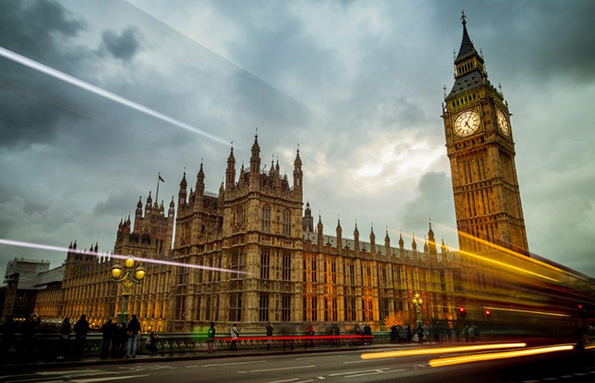This article, written by Dr Jonathan Arlow, Marie Curie Research Fellow in the Department of Politics, was originally published in The Conversation.
In the 2019 general election, Sinn Féin won seven seats in Westminster, one fewer than its main unionist rivals, the Democratic Unionist Party (DUP). However, such is the disarray in unionist politics at the moment that Sinn Féin may only need to hold these seven seats to emerge as the largest Northern Irish party in Westminster.
A result of this kind would amount to an electoral hat-trick. Sinn Féin would be the largest party in the UK Parliament, the Northern Ireland Assembly and Northern Ireland’s local government. This will be portrayed as a symbolic and psychological boost for Irish Republicanism, providing further momentum for a border poll some time in the 2030s.
Westminster’s first-past-the-post voting system means that general elections regularly become ethnic headcounts between nationalism and unionism in Northern Ireland. This can lead parties to stand down in some constituencies to aid candidates who have a better chance of defeating their main ethnic and political rivals.
Sinn Féin is not running in four constituencies where a moderate nationalist or non-aligned candidate has a better chance of defeating a unionist politician. Conor Murphy, Sinn Féin’s director of elections, has called upon his party’s supporters to back “progressive parties who will reject Tory cuts and Tory pacts”, which is code for any candidate who is not a unionist.
In three of the four constituencies, Sinn Féin’s refusal to compete will benefit the non-aligned Alliance party. In Belfast East, Naomi Long, the Alliance leader, has a real chance of unseating the DUP’s leader, Gavin Robinson, which would be a major event in this election. In Lagan Valley, Sorcha Eastwood has a chance of taking the seat that was until recently held by Jeffrey Donaldson, the former DUP leader who had to resign to face sexual assault and rape charges.
Recent research has shown that more Alliance party members back Irish unity than the union. This adds further motivation for Sinn Féin to tactically support their candidates when they are likely to unseat a unionist.
Sinn Féin’s close contests
In 2019, Sinn Féin’s John Finucane caused an upset by narrowly defeating the DUP’s Nigel Dodds in Belfast North. This year, his high profile and favourable boundary changes have helped his chances of re-election.
Michelle Gildernew in Fermanagh and South Tyrone won by 57 votes in 2019 but stood down this year to run in the European elections in the Republic of Ireland.
To replace this prominent candidate, Sinn Féin has recruited Pat Cullen, the former head of the nursing trade union, the Royal College of Nursing. Her candidacy is viewed as a political coup for Sinn Féin due to her high profile in Northern Ireland.
Importantly, it is another sign of Sinn Féin’s increasing relevance for trade unionism on the island of Ireland. The decline of the Irish Labour Party has led Sinn Féin to step into the role as the party of organised labour, given that it is the largest party sympathetic to trade union aims, north and south.
In Belfast South and Mid Down, Sinn Féin has effectively endorsed Claire Hanna of the SDLP, its main nationalist rival in the north. But in the Foyle constituency, Sinn Féin will be strongly competing against the SDLP’s leader, Colum Eastwood. He took this seat in 2019 from an incumbent Sinn Féin MP, Elisha McCallion.
Sinn Féin has recovered lost ground in this constituency, performing well there in the local elections. The party hopes that Sandra Duffy, the former mayor of Derry, may be able to retake this seat. However, Eastwood is in a strong position as he is a popular politician and is viewed as a strong performer in Westminster, especially when defending Irish nationalist interests during the protracted Brexit negotiations.
Abstentionism and Westminster
While Sinn Féin will fight for and win Westminster seats, its long-running policy of abstention means anyone elected will never actually enter the House of Commons to take their seats. The party views Westminster as a foreign parliament and refuses to swear allegiance to the crown – which is a requirement for all MPs when they’re elected.
Sinn Féin still competes for seats to increase its number of elected representatives and to deny its opponents representation. The party does also use its MPs’ allowances to fund constituency clinics.
And Sinn Féin’s elected representatives are expected to use part of their wages to hire personal assistants from among the party’s activist base. These assistants are then employed as full-time party workers, significantly increasing the party’s organisational abilities.
To those who argue that this arrangement denies constituents political representation, Sinn Féin argues that anyone who votes for their MPs is consciously voting for abstentionism, which gives this policy democratic legitimacy.
In 2017, there was speculation that Sinn Féin could enter Westminster in support of a Jeremy Corbyn-led government, given his known sympathy to Republican aims. However, this was never something seriously considered by Sinn Féin.
Ideologically, entering Westminster and swearing an oath to the crown would be too big a compromise for the party, risking an internal crisis and split – especially as its political strategy rests on the message that the union with Westminster will end within the next ten years.
This article is republished from The Conversation under a Creative Commons license. Read the original article.
